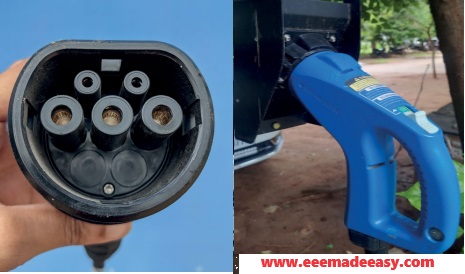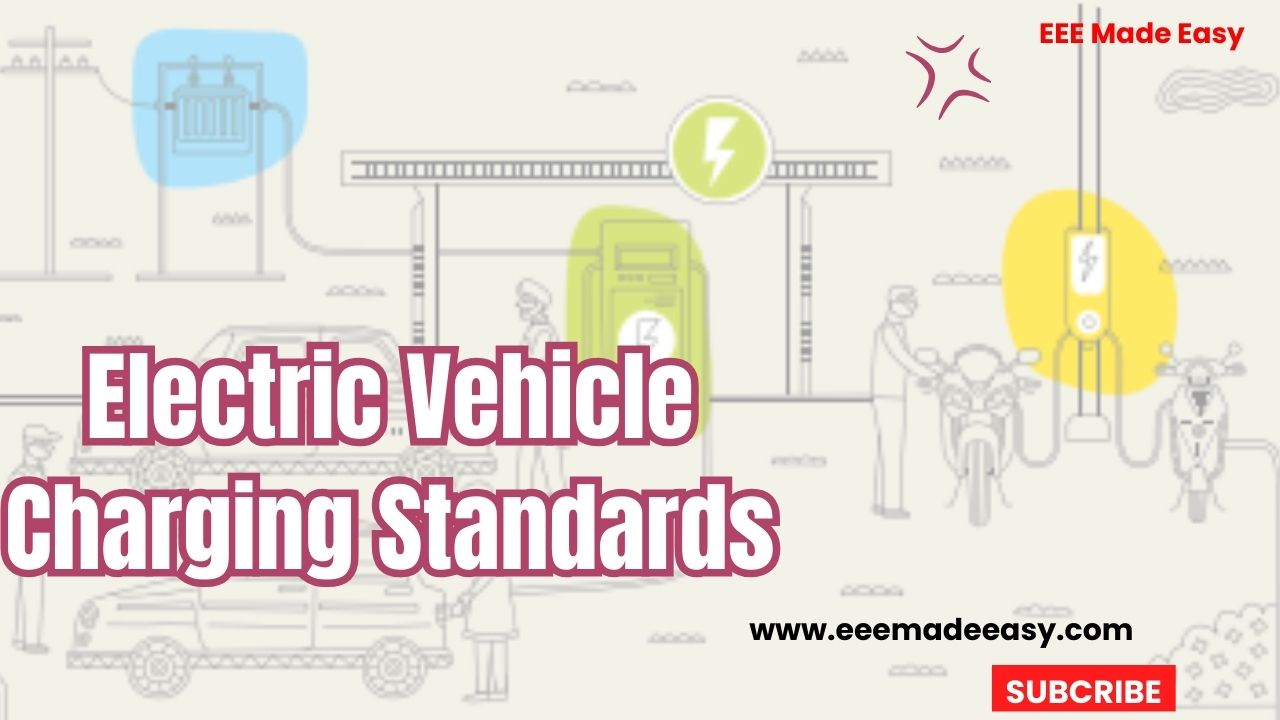Electric Vehicle Charging Standards for interoperability: The Bureau of Indian Standards (BIS), the national standards body of India,is responsible for formulating EV charging standards for the country.
Electric Vehicle Charging Standards
Standards ensure interoperability and compatibility of any EVSE with all EVs. The Bureau of Indian Standards (BIS), the national standards body of India,is responsible for formulating EV charging standards for the country.
BIS is a member of the International Electrotechnical Commission (IEC), which is the global
body that is developing reference standards to ensure interoperability and minimize trade barriers for electric vehicles and their components.
While Indian standards for EV charging are compliant with global standards, local climate considerations and the difference in vehicle types available in the country necessitate modifications that are specifically applicable to India.
Read Also: [Updated]List of IS Codes Electrical standards|IS 732, IS 3043 etc|Indian electrical standards
Indian Standards for AC Charging
IS 17017 is the key EV charging standard in India comprising three parts and six sections.
IS-17017- Part-1 provides the basic features of all EV charging systems. An AC EVSE must adhere to this standard, and specific AC connector standards in the IS-17017-Part-2.
Both AC and DC EVSE need to conform to the technical standards IS-17017-Parts 21 & 22.
Additional Indian standards for AC EVSEs have been approved for light EVs and e-cars (in the form of lowcost charging points), for use in parking areas.
Join EEE Made Easy Whatsapp Channel
Indian Standards for DC Charging
IS-17017-Part-23 describes the requirements for DC charging stations, with power output of 50kW to 200kW.
Beyond this, high power charging standards are required to cater to buses and other heavy vehicles.
Recently, the BIS has finalized the IS-17017-Part-25, which is specifically for providing low DC power of less than 7kW for light EVs.
Download & Install EEE Made Easy App
Due to the requirement of digital communications between the DC EVSE and the EV, data communication standards are specified in IS-17017-Part 24.
When the Combined Charging System (CCS) standard is deployed, which can provide both AC and DC charging, communications will be as per the IS-15118 series.

Indian Standards for Battery Swapping
Separate projects have been initiated for battery swapping standards for LEVs (Light Electric Vehicles) and buses.
They will be two series of standards documents, covering the form factor of the battery pack, inter-operable connection systems, communication between the battery management system (BMS) and the EV and charging station, and network management.
Any Electric Vehicle (EV) may utilize a battery pack conforming to these standards.
The removable battery packs can be charged using AC or DC charging systems.
The BIS is yet to develop Indian standards for EV roaming and grid-related management functions.
Read also: Bureau of Indian Standards -BIS
Read More on Indian Electricity Rules & standards
- [Updated]List of IS Codes Electrical standards|IS 732, IS 3043 etc|Indian electrical standards
- [Class A,B,C]Electrical Contractor Licence in Kerala Class A, Class B, Class C|How to get Electrical Contractor License Kerala|Electrical Supervisor Permit A and B
- [Complete Guide] Class A Electrical Contractor Licence Application, Renewal
- [PDF]IE Rules|Indian Electricity Rules 1956
- Which IE rule is applicable to service mains?|Indian Electricity Rule
- [PDF] Electricity Act 2003|Indian Electricity Act 2003 PDF
- Which act is used to regulate the Indian power sector today?
- Indian Electricity Rules MCQ|IE Rules Questions
Best Handheld Home Electric Vehicle Chargers
- Zevpoint Portable EV Charger/ Ropeset for Cars
- Portable EV Charger Fast 7.4kW (32A) with LCD Display Current Adjustment and 5 Meter Cable
- Zevpoint Swift Pro Electric Vehicle Charger | 7.2 kW, Type 2 Connector, Single Phase, 20 feet Cable | Touch Screen, Power Control, Smart
Latest Posts
Latest Posts in EEE Made Easy
- Environment MCQ for RRB JE CBT 2|Objective Questions Environment for Competitive Exams
- RRB JE CBT 2 Computer Awareness Book Arihant|Objective Computer Awareness Book 2025
- RRB JE CBT 2 Exam Date 2025 Postponed|RRB JE CBT 2 Exam Date
- [PDF]RRB JE Result 03/2024 Cut off, Selected no of candidates for all regions
- [PDF]Final Answer Key Junior Instructor Mechanic Agricultural Machinery|643/2023 Solved Question paper
- Acoustics MCQs|Industries Extension officer|IEO 2025
- LASER MCQs| Industries Extension officer|IEO 2025




